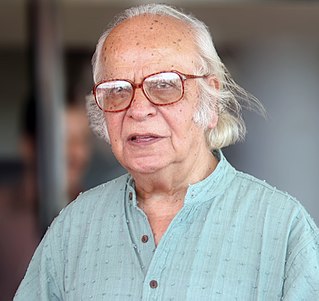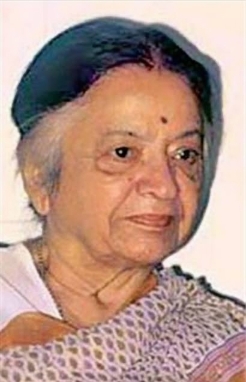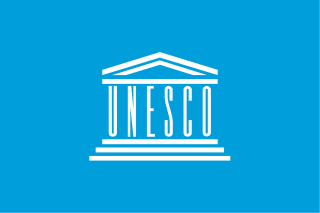Related Research Articles

University Grants Commission is a statutory body under Department of Higher Education, Ministry of Education, Government of India. It was set up in accordance to the UGC Act 1956 and is charged with coordination, determination and maintenance of standards of higher education in India. It provides recognition to universities in India, and disbursements of funds to such recognized universities and colleges. The UGC headquarters are in New Delhi, and it has six regional centres in Pune, Bhopal, Kolkata, Hyderabad, Guwahati and Bangalore. A proposal to replace it with another new regulatory body called HECI is under consideration by the Government of India. The UGC provides doctoral scholarships to all those who clear JRF in the National Eligibility Test. On an average, each year ₹725 crore (US$91 million) is spent on doctoral and post-doctoral fellowships by the commission.
Economic, social and cultural rights (ESCR) are socio-economic human rights, such as the right to education, right to housing, right to an adequate standard of living, right to health, victims' rights and the right to science and culture. Economic, social and cultural rights are recognised and protected in international and regional human rights instruments. Member states have a legal obligation to respect, protect and fulfil economic, social and cultural rights and are expected to take "progressive action" towards their fulfilment.
The Senegalese education system is based on its French equivalent. The state is responsible for the creation of an educational system that enables every citizen access to education. Articles 21 and 22 of the Constitution adopted in January 2001 guarantee access to education for all children. However, due to limited resources and low demand for secular education in areas where Islamic education is more prevalent, the law is not fully enforced.

Rajkumari Dame Bibiji Amrit Kaur DStJ was an Indian activist and politician. Following her long-lasting association with the Indian independence movement, she was appointed the first Health Minister of India in 1947 and remained in office until 1957. She also held the charge of Sports Minister and Urban Development Minister and was instrumental in setting up the National Institute of Sports, Patiala. During her tenure, Kaur ushered in several healthcare reforms in India and is widely remembered for her contributions to the sector and her advocacy of women's rights. Kaur was also a member of the Constituent Assembly of India, the body that framed the Constitution of India.
The Distance Education Bureau (DEB) is a bureau of the University Grants Commission (UGC) based in New Delhi, India, in charge of regulating distance education in India. It was established in 2012, replacing the Distance Education Council (DEC), an organisation that was responsible for open learning and distance education since 1985.

Yash Pal was an Indian scientist, educator and educationist. He was known for his contributions to the study of cosmic rays, as well as for being an institution-builder. In his later years, he became one of the leading science communicators of the country.
Department of Higher Education is the department under Ministry of Education, that oversees higher education in India.

Sheila Kaul was a social democratic leader of the Indian National Congress, a politician, cabinet minister and governor, and the oldest living former member of parliament in India at the time of her death. She was also an educator, social worker, and social reformer in the Indian state of Uttar Pradesh, and an independence activist in British India. She was Jawaharlal Nehru's sister-in-law and Indira Gandhi's maternal aunt.

Sir Chintaman Dwarakanath DeshmukhICS was an Indian civil servant and the first Indian to be appointed the Governor of the Reserve Bank of India in 1943 by the British Raj authorities. He subsequently served as the Finance Minister in the Union Cabinet (1950–1956). It was during this time that he also became a founding member of the Governing Body of NCAER, the National Council of Applied Economic Research in New Delhi, India's first independent economic policy institute established in 1956 at the behest of Prime Minister Jawaharlal Nehru. After resignation from Union Cabinet he worked as Chairman of UGC (1956–1961). He served as Vice-Chancellor of University of Delhi (1962–67). He was also President of Indian Statistical Institute from 1945 to 1964, Honorary Chairman of National Book Trust (1957–60).
The German Commission for UNESCO is one of 195 National Commissions for UNESCO worldwide, a unique structure in the UN system, foreseen by UNESCO's constitution of 1946. The German Commission was founded on May 12, 1950, one year before West Germany was officially admitted to UNESCO. It has a liaison function for German Multilateral Foreign Cultural Policy; thus, its regular budget is financed by the Foreign Office. It is a chartered non-profit voluntary association with up to 114 members: Its members represent the German Federal government and the governments of the Laender, representatives of important German institutions working within UNESCO's fields of competence as well as individual experts.

EUCLID, also called Pôle Universitaire Euclide or Euclid University, is an international intergovernmental organization with a university charter established in 2008. It has official headquarters in The Gambia and in the Central African Republic, but also maintains an executive office in Washington, D.C. Its primary mandate is to train officials for its Participating States but its programs are also offered to the general public. The institution's current Secretary-General is Winston Dookeran.

The United Nations Educational, Scientific and Cultural Organization (UNESCO) is a specialized agency of the United Nations (UN) with the aim of promoting world peace and security through international cooperation in education, arts, sciences and culture. It has 194 member states and 12 associate members, as well as partners in the non-governmental, intergovernmental and private sector. Headquartered in Paris, France, UNESCO has 53 regional field offices and 199 national commissions.

Malcolm Sathiyanathan Adiseshiah, was an Indian development economist and educator. In 1976 he was awarded the Padma Bhushan, India's third-highest civilian award. In 1998, UNESCO created the Malcolm Adiseshiah International Literacy Prize in recognition of his contribution to education and literacy. He was nominated to the Rajya Sabha, the upper house of the Parliament of India, in 1978.
National Translation Mission (NTM) is a Government of India initiative to make knowledge texts accessible, in all 22 official languages of the Indian Republic listed in the VIII schedule of the Constitution, through translation. NTM was set up on the recommendation of the National Knowledge Commission. The Ministry of Human Resource Development has designated Central Institute of Indian Languages as the nodal organization for the operationalization of NTM.

The Ministry of Education (MoE) is a ministry of the Government of India, responsible for the implementation of the National Policy on Education. The ministry is further divided into two departments: the Department of School Education and Literacy, which deals with primary, secondary and higher secondary education, adult education and literacy, and the Department of Higher Education, which deals with university level education, technical education, scholarships, etc.
National human resource development is the planned and coordinated process of enhancing human resources in one or more political states or geographic regions for economic and/or social purposes. NHRD has been recognized as a policy priority and undertaken as an activity by various divisions of the United Nations, national country governments, organizations involved in international development,. Specific human resources targeted by NHRD policy or practice typically include personal characteristics like knowledge, skills, and learned abilities and aspects of physical and psychological wellbeing; examples of NHRD interventions include ensuring that general education curricula include knowledge critical to employability and wellbeing, assisting employers in implementing effective on-the-job training programs that promote both greater effectiveness and workplace empowerment, and working to benefit specific populations by, for example, aligning vocational education and training with maternal health services and nutritional support.
Azerbaijan has been a member in the United Nations since March 2, 1992, after the UN General Assembly admitted Azerbaijan at its 46th session. The Permanent Mission of the Republic of Azerbaijan was opened in New York City in May 1992. On October 29, 1991, soon after gaining independence from the Soviet Union, Azerbaijan applied to the UN General Assembly for joining the organization. Azerbaijan was elected as a non-permanent member of the UN Security Council for the term of 2012–2013.
References
- 1 2 "India". Unesco.Org. 24 November 1981. Retrieved 26 February 2013.
- 1 2 "Indian National Commission for Co-operation with UNESCO (INCCU) |". Mhrd.gov.in. Archived from the original on 15 June 2013. Retrieved 26 February 2013.
- ↑ "About National Commissions for UNESCO - | UNESCO.org". Portal.unesco.org. 16 March 2009. Retrieved 26 February 2013.
- 1 2 "Basic Texts" (PDF). UNESCO. Retrieved 26 February 2013.
- ↑ "About us". UNESCO Center for Peace. Archived from the original on 5 September 2018. Retrieved 26 February 2013.
- ↑ S. P. Agrawal; J. C. Aggarwal (1 January 1988). Unesco and Social Sciences: Retrospect & Prospect. Concept Publishing Company. pp. 153–. ISBN 978-81-7022-201-9.
- ↑ Aruna Goel; S. L. Goel (1 January 2010). Encyclopaedia of higher education in the 21st century. Deep & Deep Publications. pp. 118–. ISBN 978-81-7629-584-0.